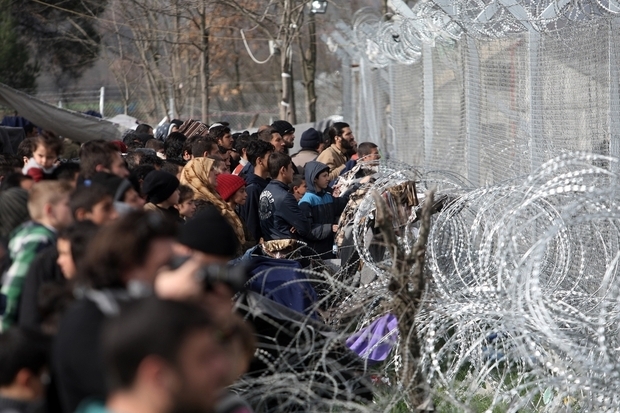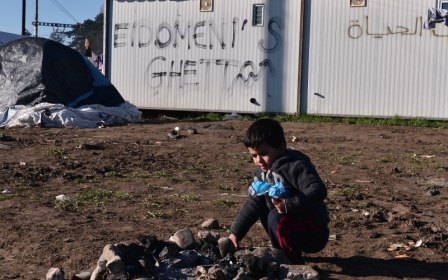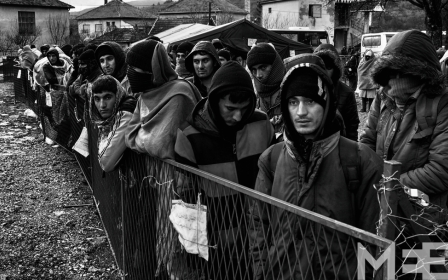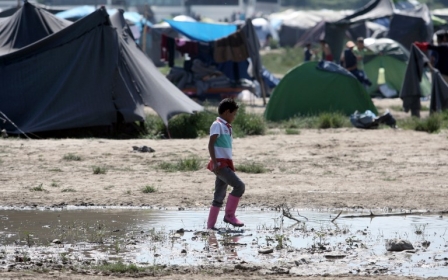Bulgaria stops 100 migrants seeking new EU route at Greek border

Bulgaria for the first time blocked about a hundred refugees from entering through its southern border with Greece, sending a "strong message" to human traffickers, a minister said on Sunday.
Among them were 56 Afghans who were found hiding on board a freight train, as well as another group of some 40 Syrians and Iraqis.
Both groups were stopped on Saturday in what was the largest number of people caught trying to enter the eastern European country since the start of the refugee crisis.
Following the recent evacuation of the Idomeni migrant camp on the Greek-Macedonia border, where thousands had been stranded after Balkan states closed their borders, Bulgaria had been bracing for an influx of people seeking a new route to Europe.
"Their return was carried out at a record speed for Europe," said Prime Minister Boyko Borisov, after meeting border police and an army unit in the southwestern town of Blagoevgrad.
"We have sent a strong message to traffickers who are exploiting these unfortunates," Interior Minister Rumyana Bachvarova said.
The Afghans were returned to Greece the same day, while the other 40 are being investigated and will likely be sent back in the coming week, Borisov said.
The refugees had each paid traffickers about $220, believing they were being taken into Macedonia, he said.
In order to manage any further incidents, a contingent of 65 soldiers equipped with 4x4 vehicles will be deployed along the western part of the Greek border to back up the border police, he said.
Bulgaria's border with Greece is nearly 500km long, and it also shares a 260km frontier with Turkey.
So far, Sofia has concentrated on buttressing its Turkish frontier, speeding up construction of a 132km fence that is some three metres high.
But earlier this year, Borisov said the Greek frontier was "the major threat," saying if necessary, Sofia would erect a barrier there too.
Situated on the EU's eastern flank, Bulgaria registered 5,010 asylum seekers this year, among them Syrians, Iraqis and Afghans.
New MEE newsletter: Jerusalem Dispatch
Sign up to get the latest insights and analysis on Israel-Palestine, alongside Turkey Unpacked and other MEE newsletters
Middle East Eye delivers independent and unrivalled coverage and analysis of the Middle East, North Africa and beyond. To learn more about republishing this content and the associated fees, please fill out this form. More about MEE can be found here.




